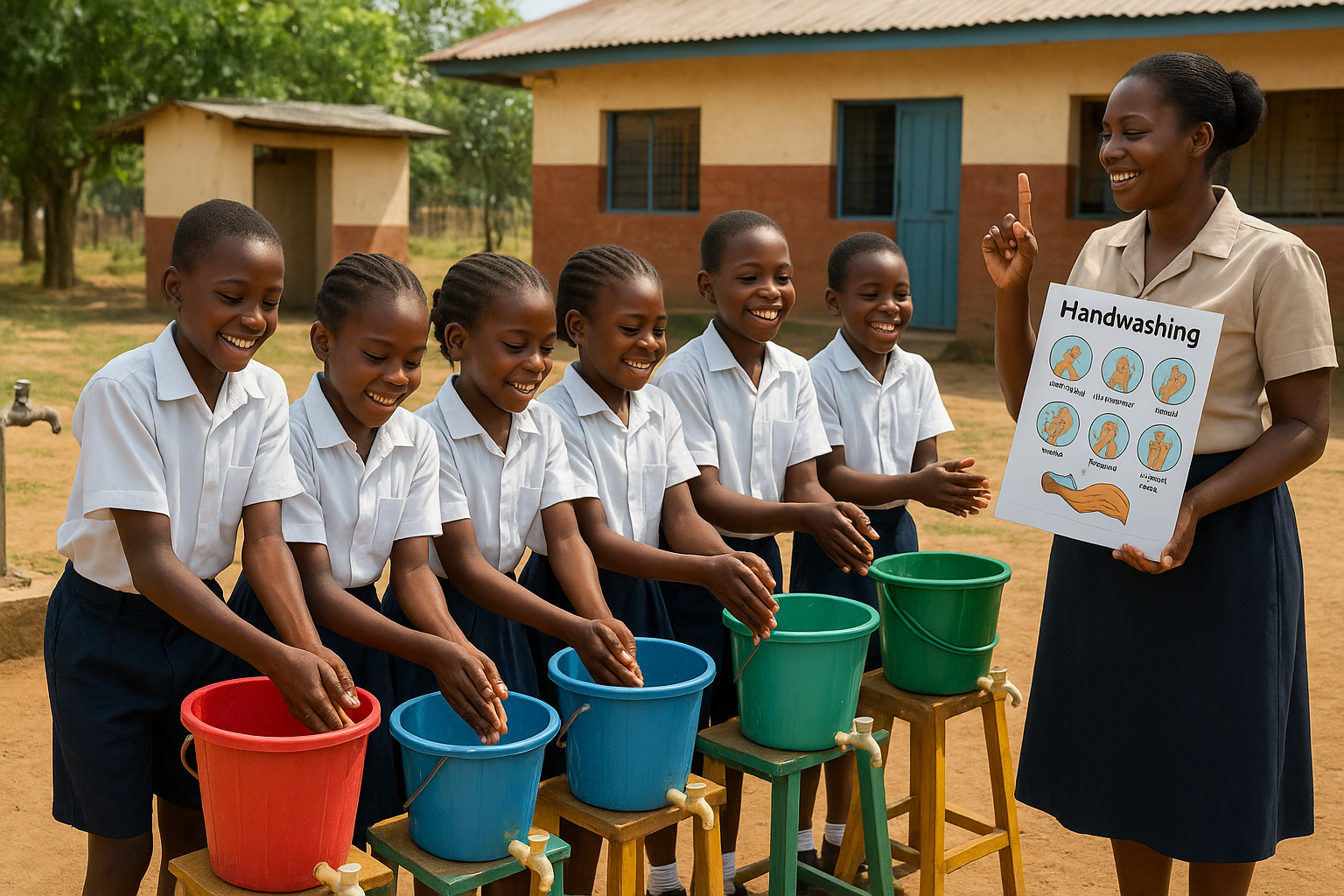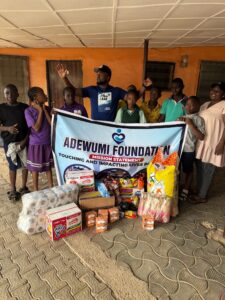Access to good hygiene in schools is about more than clean hands — it’s about protecting children’s health, improving school attendance, raising learning outcomes, and creating lifelong healthy habits. For many schools across Africa, especially in under-resourced and rural areas, basic hygiene facilities (clean water, functional toilets, soap, handwashing stations, menstrual hygiene support) are still limited or absent. This creates daily barriers to learning, increases risk of infectious diseases, and disproportionately affects girls.
Adewumi Foundation is committed to changing that. Below is a clear, actionable overview of the hygiene challenges facing schoolchildren, why they matter, and practical ways members of the public — individuals, community groups, and local businesses — can help.
Why school hygiene matters
-
Reduces illness: Handwashing with soap and safe sanitation drastically cuts diarrhoeal disease and respiratory infections — two leading causes of child illness.
-
Improves attendance and learning: Sick children miss school. Girls, in particular, are more likely to miss school during menstruation if there’s no private, safe sanitation.
-
Builds lifelong habits: Schools are where children learn behaviours that last. Teaching proper handwashing, safe water use, and menstrual hygiene management equips the next generation.
-
Protects communities: Healthy children reduce household illness and healthcare costs, improving community resilience.
Common hygiene gaps in schools
-
No reliable safe water supply (boreholes, taps)
-
Few or non-functional toilets; lack of gender-segregated, private facilities
-
No handwashing stations with soap near latrines and food areas
-
Lack of menstrual hygiene supplies and private changing/disposal facilities
-
Poor waste management and no routine cleaning schedules
-
Limited hygiene education embedded in daily school routines
What Adewumi Foundation can do (and how the public can help)
Below are practical, scalable actions that the foundation can coordinate — and where the public’s involvement creates real impact.
1. Build and maintain water & sanitation infrastructure
What to do: install or repair boreholes / piped taps; construct or renovate gender-segregated toilets with handwashing points; provide menstrual waste disposal units.
How the public can help:
-
Donate toward construction materials or a full water/latrine project. (Small donations pooled can fund big results.)
-
Sponsor a specific school — name a water point or hygiene block.
-
Volunteer skilled labour (plumbers, masons, electricians) during installation and follow-up maintenance.
2. Provide soap, handwashing stations, and menstrual supplies
What to do: supply soap, handwashing buckets or tippy-taps, liquid soap dispensers, and reusable or disposable sanitary pads.
How the public can help:
-
Monthly donation drives for soap and sanitary kits.
-
Community soap-making workshops to create affordable soap locally — schools can be supplied from local micro-enterprises.
-
Corporate partners can donate hygiene packs as part of CSR programs.
3. Run hygiene education and behaviour-change programs
What to do: integrate age-appropriate hygiene lessons into the school day, show handwashing demonstrations, and run student peer-education programs.
How the public can help:
-
Volunteer teachers or trainers (even for short weekly sessions).
-
Support print materials (posters, flipcharts) and locally-language resources.
-
Sponsor school clubs focused on WASH (Water, Sanitation, Hygiene) activities.
4. Support menstrual hygiene management (MHM)
What to do: provide safe, private changing spaces, menstrual supplies, disposal options, and MHM education for girls and boys.
How the public can help:
-
Donate menstrual kits or fund the manufacture of reusable pads (community sewing groups).
-
Fund privacy renovations in school toilets and waste disposal units.
-
Support awareness campaigns addressing stigma and teaching boys to be allies.
5. Establish cleaning routines and school health committees
What to do: form committees of teachers, parents, and students to manage hygiene supplies, cleaning schedules, and minor repairs.
How the public can help:
-
Train volunteer community champions to support school committees.
-
Provide seed funds for cleaning supplies and a maintenance kitty.
-
Partner with local governments to ensure sustainability and link schools to municipal waste services.
6. Fund monitoring, evaluation, and scale-up
What to do: track attendance, illness rates, and facility functionality to show impact and guide resource allocation.
How the public can help:
-
Fund simple data collection tools and training.
-
Sponsor pilot programs that can be expanded when proven effective.
-
Advocate with local authorities for school WASH budgets and policies.
How Adewumi Foundation will implement projects (example phased plan)
-
Assessment — visit schools, map needs (water, toilets, soap, MHM).
-
Community engagement — meet parents, teachers, local leaders to co-design solutions.
-
Build & supply — construct/repair facilities, install handwashing stations, deliver supplies.
-
Train & educate — run teacher workshops, student sessions, and create hygiene clubs.
-
Monitor & sustain — set up committees, small maintenance funds, regular checks and reports.
Success stories & metrics to expect
Impact can be measured and communicated: reductions in absenteeism (especially among girls), lower incidence of diarrhoeal disease, increased handwashing rates, and functioning maintenance systems. Even simple wins — a working handwashing station with soap at every latrine — have outsized benefits.
Ways individuals and groups can get involved today
-
Donate: one-time or monthly contributions focused on WASH projects.
-
Fundraise: run community fundraisers, school drives, or social media campaigns in support of a named school.
-
Volunteer time or skills: join build days, teach hygiene classes, or support monitoring visits.
-
Partner: local businesses can sponsor supplies, transport, or materials.
-
Advocate: raise the issue with local councils and school boards to secure public funding and policy support.
-
Give in-kind: soap, buckets, sanitary pads, cleaning tools — especially useful for immediate needs.
Join Adewumi Foundation in protecting children.
Hygiene is an achievable public good when communities, donors, schools, and civil society work together. Adewumi Foundation invites members of the public to be part of this change: sponsor a school, start a soap-drive, teach a lesson, or donate to a hygiene block. Together we can ensure that every child goes to a safe, healthy school — where illness doesn’t steal learning and dignity is protected.
Contact Adewumi Foundation to learn about current school hygiene projects, ongoing needs, and how your donation or volunteer time will be used. Let’s build clean, safe, and healthy schools — one child at a time.
Discover more from Adewumi Foundation
Subscribe to get the latest posts sent to your email.




